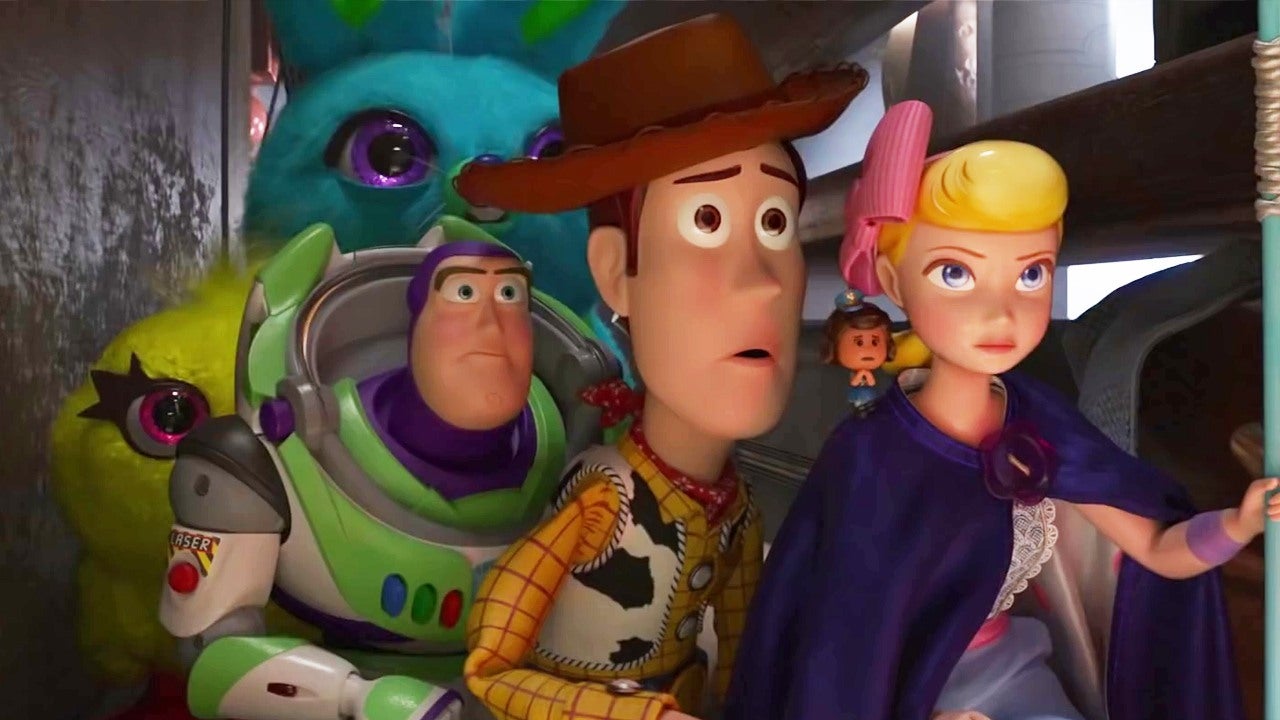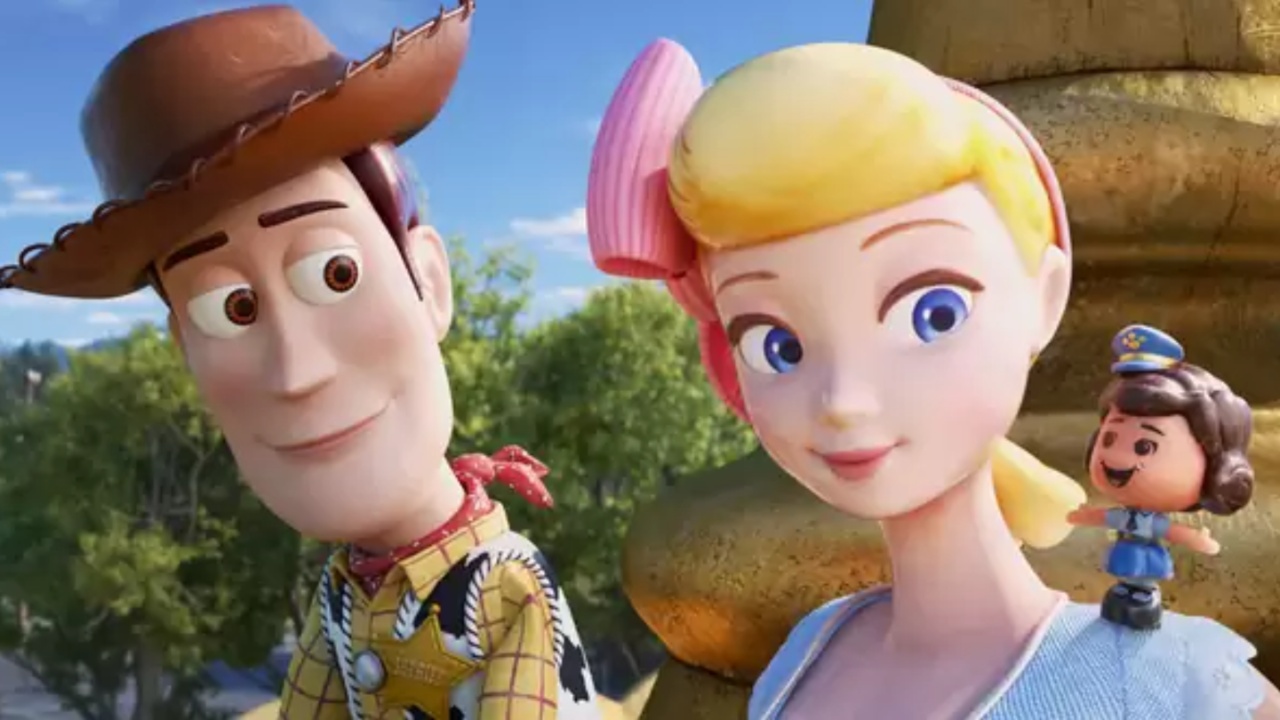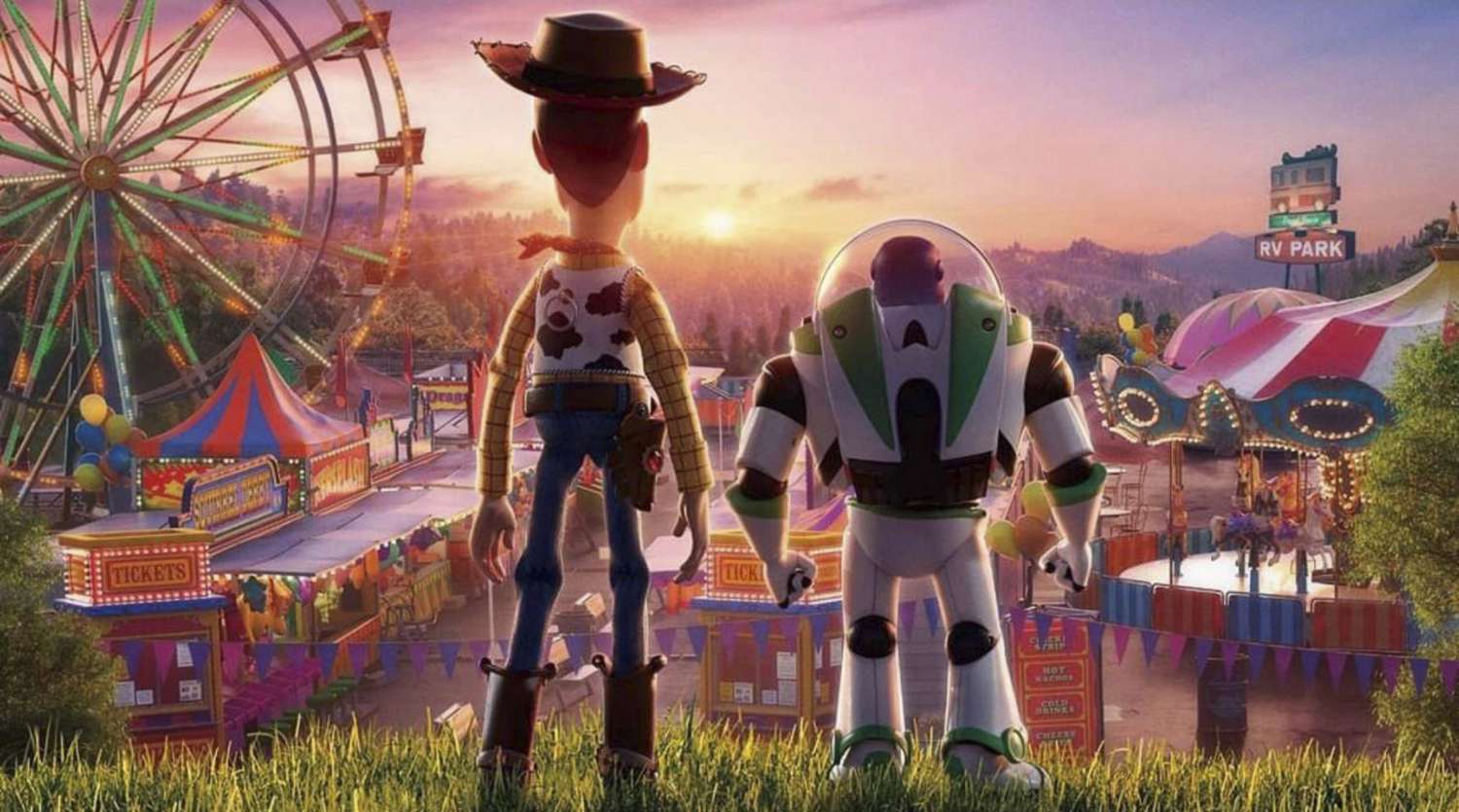Toy Story 4 serves as a moving and satisfying conclusion to the long-running Toy Story saga. Directed by Josh Cooley, this fourth installment offers a more reflective and emotionally rich story than its predecessors. While the film features exciting sequences, such as motorized stunts and comedic side characters voiced by Keanu Reeves, the heart of the story revolves around Woody’s journey of purpose, identity, and love. Unlike earlier films, which focused mainly on adventure and friendship, this movie emphasizes introspection and examines what it truly means to be a toy and how choices shape a life.
The story picks up shortly after the events of Toy Story 3, with Woody (Tom Hanks) no longer the center of attention during playtime. Bonnie has made Forky (Tony Hale), a craft-project spork who insists he is trash, her favorite toy. Woody assumes the responsibility of guiding Forky to accept his role as a toy. Along the way, Woody encounters Bo Peep (Annie Potts), who represents a life of freedom as a lost toy. Together, they face challenges in an antique store run by Gabby Gabby (Christina Hendricks), navigate fairground attractions, and undertake daring adventures. Their goal is to return Forky and Woody to Bonnie.
Woody’s journey is driven by his struggle with rejection. Once the most cherished toy, he now confronts being replaced. His dedication to Forky becomes a mission that tests his courage and requires personal sacrifices. Woody helps others, including Gabby Gabby, Duke Caboom (Keanu Reeves), and the comedic pair Ducky and Bunny (Keegan-Michael Key and Jordan Peele), showing growing selflessness. This transformation moves him beyond his former role of serving a single child. The film emphasizes the importance of caring for others and finding meaning beyond traditional duties.

Woody Learns Freedom, Purpose, and Fulfillment Beyond Duty, Love, and Expected Roles
Bo Peep’s return introduces Woody to the possibility of a life outside a child’s bedroom. She represents independence, adventure, and self-determination. Initially, Woody remains committed to returning Forky to Bonnie, but he begins to reconsider his path as he compares duty with freedom. With encouragement from Buzz Lightyear (Tim Allen), Woody chooses to stay with Bo Peep. He realizes that Bonnie does not need him, and he no longer needs to be confined to a single purpose. This choice illustrates that fulfillment can be found in new experiences and relationships beyond what one originally expected.
While Woody’s story reaches closure, the film also considers what it means to be a toy. Forky, created by Bonnie during a school project, raises questions about whether life comes from love, imagination, or both. The arrival of another handmade toy, similar to Forky, humorously acknowledges audience curiosity about this idea. The story suggests that the mechanics of a toy’s life are not important. What matters are the connections toys make and the positive impact they have on others. This theme reflects the movie’s broader message about purpose, relationships, and meaning.
Toy Story 4 goes beyond the story of toys to address universal questions about relevance, existence, and human emotion. Earlier films asked, “What if toys were alive?” and “What happens when children grow up?” The fourth film examines love, self-worth, and legacy in a deeper way. Woody’s struggle represents universal concerns, including how to maintain purpose when replaced, how to act selflessly, and how to find meaning in life. The story emphasizes that fulfillment comes from more than a single relationship. It comes from the broader network of connections and the positive influence one can have on others.

Toy Story 4 Provides Closure While Leaving Opportunities for Future Spin-offs and Stories
Toy Story 4 faced initial skepticism because the first three films seemed to form a complete trilogy following Andy from childhood to adulthood. The fourth film addresses lingering questions, such as the transition of toys to Bonnie and the ultimate purpose of a toy’s life. Woody’s decision to live with Bo Peep allows him to retire from being a child’s plaything while still contributing meaningfully to others. The movie provides closure not only for Woody but also for the entire series, resolving key emotional and thematic arcs developed over more than twenty years.
Although Toy Story 4 concludes the main narrative of Woody and Andy or Bonnie, the franchise leaves room for spin-offs and side stories. Disney+ has announced a series called Forky Asks a Question, which follows Forky as he learns about the world. Future films could focus on lost toys or continue the adventures of the toys remaining with Bonnie. However, the central themes of purpose, love, identity, and mortality are complete. Any continuation would need to focus on new characters or storylines rather than extending the original saga.
Toy Story 4 stands out among franchise conclusions for its emotional depth and completeness. Unlike other series finales, the film provides both closure and reflection, allowing audiences to appreciate the passage of time, the growth of characters, and the search for meaning. Woody’s retirement and acceptance of a new life demonstrate the series’ maturity. The movie confirms the power of storytelling to address universal questions while maintaining the humor, charm, and heart that have defined Toy Story for over twenty-four years. It provides a fitting end to a beloved series and secures the legacy of the franchise.



